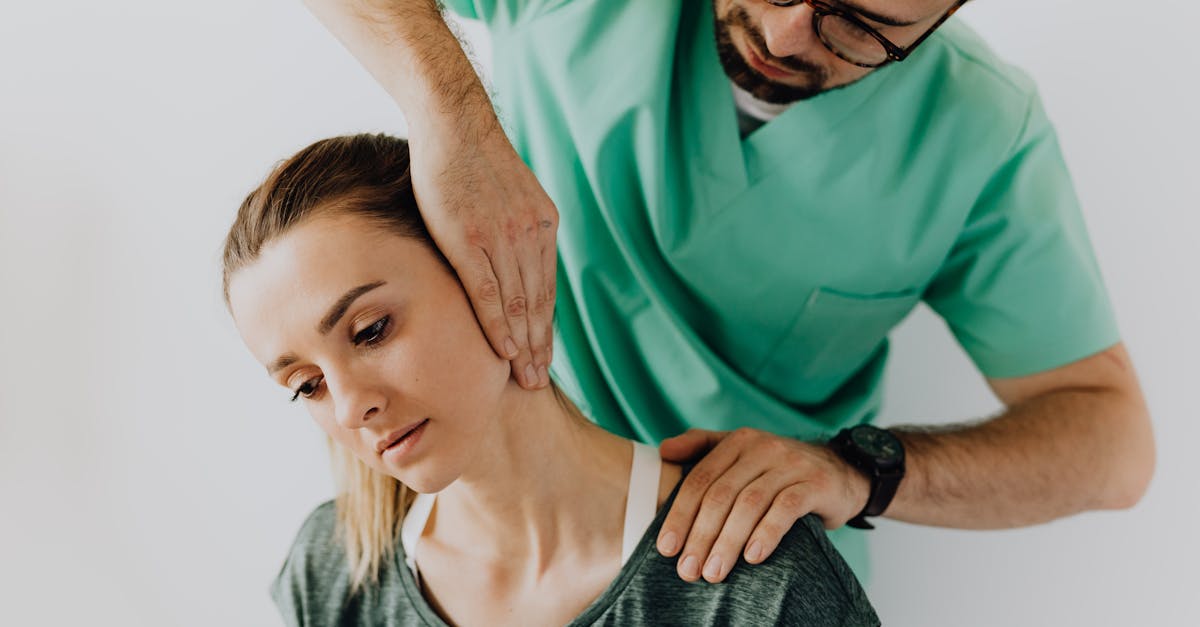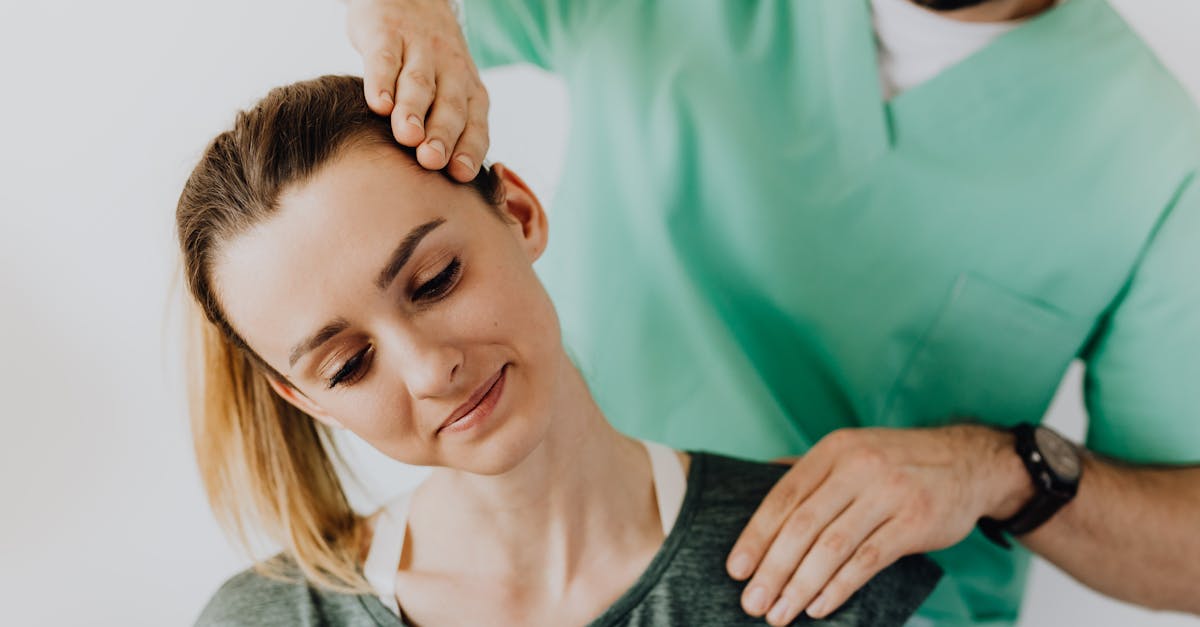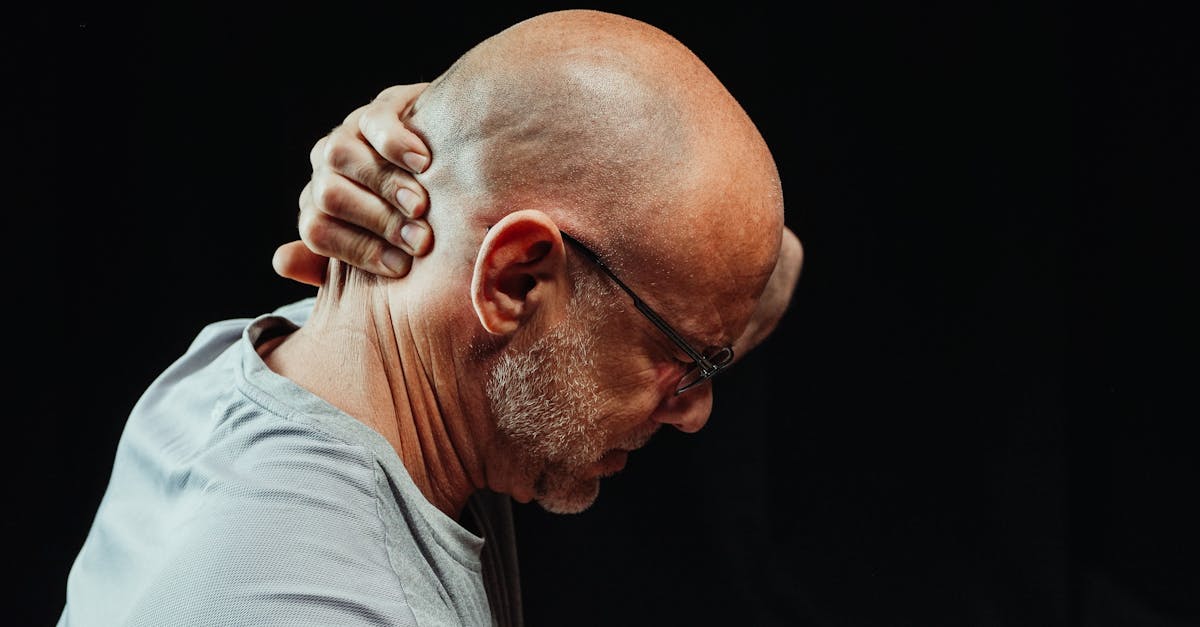|
In Short, waking up with neck pain is a common issue stemming from factors like poor sleep posture and inadequate pillow support. Understanding the causes leads to effective strategies for relief, significantly enhancing comfort and overall mobility. Addressing this discomfort can promote a better quality of life, ensuring you reclaim your freedom of movement. By implementing practical measures such as gentle stretches and ergonomic pillow choices, you can mitigate pain and improve your sleeping health. |
Waking up with neck pain is a common issue that can disrupt daily activities and severely affect one’s quality of life. The primary causes are often linked to sleep posture, such as using improper pillows or sleeping in awkward positions that strain the neck muscles. Medical conditions, including osteoarthritis and past injuries, can further exacerbate discomfort. To alleviate morning neck pain, individuals can adopt effective strategies like adjusting sleeping positions, using ergonomic pillows, engaging in gentle stretches, applying warm compresses, and consulting healthcare professionals when pain persists. Understanding these factors and remedies can significantly enhance physical well-being and promote restful sleep.

Welcome to Pulse Align, where our focus lies in restoring your body’s natural balance and improving posture through gentle stimulation. Our innovative method employs subtle pulses that promote muscular symmetry and overall well-being, allowing you to embark on a journey towards feeling more aligned and comfortable in your daily activities.
Gentle and Non-Invasive Recalibration
At Pulse Align, we recognize the importance of muscle tone symmetry and proper posture in maintaining your body’s health. Our non-invasive technique facilitates a natural recalibration process, which often leads to a sense of well-being and relaxation. By promoting a balanced body structure, we aim to help you achieve a state of comfort and ease, reducing tension and supporting overall function.
A Personalized Approach to Wellness
Every client’s journey with Pulse Align is personalized, and our supportive atmosphere encourages family participation. Many of our clients have experienced significant improvements in how they feel, with reductions in discomfort and an enhanced sense of well-being. They have shared inspiring testimonials that emphasize the gentle support provided at Pulse Align, showcasing journeys towards improved comfort and enhanced mobility.
Explore Your Wellness Opportunities
We invite you to learn more about how Pulse Align can be part of your wellness journey. Whether you’re in La Prairie, Mont-Royal, Terrebonne, or any of our other conveniently located clinics, we are here to support you and your family in achieving a balanced and harmonious lifestyle. Visit our website to find nearby locations, book a consultation, and discover how our gentle, family-friendly approach can enhance your well-being today. Remember, Pulse Align complements ongoing healthcare while allowing you to explore alternative pathways to wellness.
Medical Disclaimer
The services provided by Pulse Align are designed to complement, not replace, any professional medical care. Clients are encouraged to remain under the oversight of their healthcare teams for any medical conditions. Any improvements experienced by clients are attributed to the inherent ability of the body to restore balance, rather than the direct intervention of Pulse Align.
- Cause: Poor sleeping position
- Solution: Adjust pillow height and ensure proper neck alignment
- Cause: Inadequate or stiff pillows
- Solution: Use ergonomic pillows that support neck curvature
- Cause: Previous injuries
- Solution: Engage in targeted exercises and physical therapy
- Cause: Stress and tension
- Solution: Practice relaxation techniques and yoga
- Cause: Chronic conditions like osteoarthritis
- Solution: Consult healthcare professionals for appropriate treatments

Waking up with neck pain is a common issue that can significantly impact your daily life. This discomfort often stems from poor sleep posture, inadequate pillows, or underlying medical conditions. Recognizing the causes of neck pain upon waking and implementing effective remedies can alleviate discomfort and promote better overall wellness.
Common Causes of Neck Pain Upon Waking
Poor Sleep Posture
Poor sleep posture is one of the primary contributors to waking up with neck pain. Sleeping in positions that strain the neck, such as on your stomach or with an awkwardly positioned pillow, can lead to muscle tension and discomfort. It is crucial to find sleep positions that maintain the natural alignment of the spine to reduce strain on neck muscles.
Inadequate Pillow Support
Using a pillow that does not provide proper support can also exacerbate neck pain. A pillow that is too high or too stiff can force the neck into an unnatural position during the night. Conversely, a pillow that is too low may fail to support the head adequately. Selecting a pillow that maintains the natural curve of the spine is vital for enhancing comfort and reducing pain upon waking.
Pre-existing Health Conditions
Individuals with underlying medical conditions such as osteoarthritis, herniated discs, or prior injuries may experience heightened sensitivity and discomfort. Conditions that affect the cervical spine can lead to stiffness and inflammation, therefore recognizing these pre-existing health issues can help when considering treatment options.
Effective Remedies for Neck Pain
Adjusting Your Sleep Environment
Improving your sleep environment is essential for preventing neck pain. Consider investing in an ergonomic pillow that supports the natural alignment of your neck. Additionally, keeping your mattress in good condition can provide adequate support for your entire body. A medium-firm mattress often strikes the right balance, which can help maintain proper posture during sleep.
Gentle Stretching and Exercises
Incorporating gentle neck stretches and exercises into your daily routine can significantly reduce tension. Simple maneuvers such as neck rolls, side stretches, and chin tucks can enhance flexibility and promote better muscle health. Performing these exercises before bed or immediately upon waking can help to relieve stiffness.
Heat and Cold Therapy
Utilizing heat and cold therapy can provide immediate relief for neck pain. Applying a warm compress can help relax tight muscles, while cold packs can reduce inflammation. Alternating between heat and cold treatments can offer enhanced benefits for relieving discomfort.
When to Seek Professional Consultation
Identifying Persistent Issues
Chronic neck pain that persists despite implementing self-care strategies may warrant a visit to a healthcare professional. Persistent discomfort can indicate underlying issues requiring specialized treatment, such as physical therapy. Seeking professional advice can lead to a thorough evaluation and appropriate intervention strategies tailored to your specific needs.
Embracing Holistic Health Approaches
Adopting a holistic approach that considers not only physical treatment but also lifestyle adjustments can empower individuals to manage neck pain more effectively. Techniques like stress management, ergonomic improvements, and regular physical activity can foster overall health and well-being.
| Causes | Effective Remedies |
|---|---|
| Poor sleep posture | Adopt a supportive pillow to maintain natural alignment. |
| Inadequate pillow support | Select an ergonomic pillow with appropriate height and firmness. |
| Muscle strain from awkward positions | Incorporate gentle stretches to enhance flexibility. |
| Previous injuries or trauma | Engage in mindful movements to promote healing and balance. |
| Osteoarthritis or wear and tear | Focus on maintaining an active lifestyle to support overall wellness. |
| High stress levels | Practice relaxation techniques to alleviate muscle tension. |
| Improper sleep environment | Ensure a comfortable mattress that supports body alignment. |
| Dehydration | Stay hydrated to maintain muscle function and health. |
| Lack of physical activity | Incorporate regular physical activity to enhance mobility. |
| Aging | Embrace holistic practices to support balance and rejuvenation. |

Client Testimonials: Embracing Wellness and Holistic Recovery
In La Prairie, clients have shared how their journey with Pulse Align transformed their experience of waking up with neck pain. One individual remarked, “I never knew my body could feel this good. Thanks to Pulse Align’s holistic approach, I not only relieved my pain but also found a new level of comfort every morning.” This testimony highlights how the unique techniques employed by Pulse Align support the body’s natural ability to recalibrate and restore balance.
Clients in Mont-Royal have expressed similar sentiments, stating, “After just a few sessions, I noticed significant changes in how I felt when I woke up. The gentle pulses seemed to invite my body to heal itself, and my neck pain became a thing of the past.” Such feedback illustrates the effectiveness of the method, which fosters overall well-being and allows individuals to reclaim freedom of movement.
In Terrebonne, another client commented, “I was skeptical at first, but letting Pulse Align guide my wellness journey proved invaluable. I learned how to improve my posture and reduce my neck pain naturally.” The individualized care provided at Pulse Align enables clients to uncover their body’s potential for recovery, leading to enhanced comfort and functionality.
Residents of Les Escoumins have reported experiencing improvements as well, with one individual stating, “The holistic techniques really spoke to my body’s innate intelligence. I can’t believe how effectively I’ve managed my neck pain without invasive treatments.” This reinforces Pulse Align’s commitment to enhancing clients’ quality of life through non-invasive methods.
In cities such as Sainte-Marie and Chicoutimi, community members have found value in Pulse Align’s services. A satisfied client shared, “The supportive environment and innovative approach at Pulse Align made a world of difference. My morning stiffness is gone, and I feel ready to embrace each day.” The positive client experiences echo the value of an integrative approach that complements traditional healthcare while prioritizing the natural healing processes.
For those in Châteauguay, the collective experiences reiterate the extensive benefits Pulse Align offers. A recent participant noted, “I never thought I would be free from the constraints of my morning pain. The gentle encouragement to recalibrate and restore balance is something I deeply appreciate.”
To learn more about how Pulse Align can support your wellness journey, visit Our Clinics. We are dedicated to working alongside healthcare teams, ensuring that clients and their families are supported through every step of their recovery, promoting a renewed sense of vitality and comfort in daily life.
Waking up with neck pain is a common experience that many individuals endure, often impacting their daily routines and overall quality of life. The discomfort can manifest in various forms, including stiffness, soreness, or a reduced range of motion in the neck. Understanding the underlying causes of this discomfort is crucial in developing effective remedies.
A significant factor contributing to neck pain upon waking is poor sleep posture. Sleeping in awkward positions, such as with the neck too flexed or extended, can lead to muscle strain and discomfort. Using an inappropriate pillow—whether too high, too stiff, or too flat—can also exacerbate such issues. The right pillow should support the natural alignment of the neck and head, ensuring sufficient support to prevent unnecessary strain during sleep.
Another concern that often goes unnoticed is the impact of previous injuries. For instance, individuals with a history of whiplash may experience recurring neck pain due to the lingering effects of trauma on soft tissues and surrounding structures. Additionally, underlying medical conditions such as osteoarthritis can further complicate matters, leading to stiffness and inflammation in the cervical spine.
To address these concerns effectively, many individuals turn to healthcare professionals for guidance. One notable expert in this field is Dr. Sylvain Desforges, who specializes in chronic pain management. As the founding president of TAGMED clinics and the ACMA association, Dr. Desforges is devoted to healthcare innovation and the development of cutting-edge treatment strategies. His expertise includes a variety of modalities such as spinal decompression, laser therapy, and shockwave therapy, all aimed at relieving persistent pain and improving patient outcomes.
Dr. Desforges believes that providing evidence-based care is essential for optimizing patients’ health and overall well-being. His approach involves thorough assessments to identify the root causes of neck pain, allowing for tailored treatment plans that promote healing and restoration of function. By focusing on the individual patient’s needs, he develops protocols incorporating the latest advancements in pain management technology.
In addition to these advanced therapies, Dr. Desforges encourages patients to implement preventive strategies as part of their daily routines. Improving sleep posture is a fundamental step—individuals are advised to sleep on their backs or sides with properly aligned pillows to ensure neck support. Incorporating gentle stretches and exercises can also help alleviate muscle tension and build strength in the neck area. Simple neck rolls, side stretches, and chin tucks are examples that can promote flexibility and mobility.
Heat and cold therapy are other viable options for managing neck pain upon waking. Applying warm compresses can relax tight muscles, while cold packs may reduce inflammation and discomfort. Alternating between both treatments can offer substantial relief depending on the underlying symptoms.
Ultimately, those experiencing chronic neck pain should seek professional assistance when necessary. By addressing both immediate symptoms and underlying issues, individuals can reclaim their mornings and enhance their overall quality of life, free from the burden of persistent discomfort. Through a comprehensive understanding of the causes and effective treatment modalities offered by experts like Dr. Sylvain Desforges, individuals can navigate their path to recovery with confidence.
Understanding Neurovertebral Decompression Technology from TAGMED
Mechanism of Action
The neurovertebral decompression technology developed by TAGMED operates by applying controlled, progressive traction forces to the spine. This innovative treatment gently separates the vertebrae, effectively increasing the space between them. As this space grows, it reduces the pressure on both the intervertebral discs and the nearby nerve roots, which often become compressed in conditions such as herniated discs or spinal stenosis.
Such decompression facilitates improved fluid circulation within the targeted area, which is crucial for healing. This rejuvenated flow helps nourish the affected discs and nerves, playing a significant role in reducing inflammation—a common contributor to pain. By alleviating both physical pressure and inflammation, neurovertebral decompression can lead to considerable pain relief.
Specific Advantages
This non-invasive treatment method has shown to be particularly effective for managing chronic pain and symptoms related to conditions outlined in Waking Up with Neck Pain: Understanding Causes and Effective Remedies. TAGMED’s neurovertebral decompression directly addresses the discomfort associated with herniated discs, bulging discs, as well as moderate to severe foraminal and spinal stenosis.
One of the standout benefits is the reduction of pressure exerted on the nervous structures, which can significantly enhance the quality of life for patients experiencing chronic pain. By promoting better fluid dynamics around the discs, this approach encourages faster recovery times and supports improved physical function. Patients often report feeling more mobile and less restricted, leading to a rejuvenated sense of well-being.
Comparison with Other Treatments
When compared to traditional treatment methods for managing neck pain and associated conditions—such as painkillers, corticosteroid injections, surgeries, or standard physiotherapy—TAGMED’s neurovertebral decompression presents several unique advantages. Unlike more invasive surgical alternatives that carry significant risks, neurovertebral decompression is non-invasive and generally associated with fewer complications.
Furthermore, this technique minimizes the need for pharmacological interventions that can lead to dependency or adverse side effects. Many patients experience quicker recovery times and substantial pain relief, making neurovertebral decompression an appealing option for those seeking effective relief without entering a cycle of medication reliance.
Case Studies and Testimonials
Numerous patients have successfully benefitted from TAGMED’s neurovertebral decompression, reporting remarkable improvements in their chronic pain symptoms. For instance, a patient suffering from chronic neck pain indicated, “After several sessions, the persistent discomfort I lived with diminished significantly. I felt a renewed sense of mobility and was able to return to activities I had long avoided.” Such testimonials illustrate the tangible changes many individuals experience through this innovative approach.
Moreover, a client expressed, “The treatment not only alleviated my neck pain but also significantly improved my overall well-being. I now engage more fully with daily activities and rely less on medications for relief.” These accounts underscore the transformative potential of neurovertebral decompression, serving as a testament to its efficacy in managing chronic conditions that contribute to debilitating pain.
Conclusion on Waking Up with Neck Pain: Understanding Causes and Effective Remedies
Waking up with neck pain can profoundly affect one’s overall quality of life, leading to discomfort that lingers throughout the day. The primary causes of this affliction often stem from poor sleep posture, inadequate pillow support, and existing medical conditions. Recognizing these factors is essential for implementing effective solutions.
Improving sleep posture is a crucial step toward alleviating neck pain. Individuals should consider sleeping on their backs or sides while ensuring their pillows provide adequate support that maintains the spine’s natural alignment. Additionally, the choice of a medium-firm pillow can significantly impact comfort levels. Adapting these sleep habits can lead to a more restful night and a pain-free morning.
Beyond sleep adjustments, integrating gentle stretches and neck exercises into daily routines can help enhance overall neck health. Simple movements can alleviate tension and improve flexibility, making a noticeable difference in how one feels upon waking. Furthermore, applying heat and cold therapy can provide immediate relief, targeting sore muscles and reducing inflammation.
For those experiencing chronic neck pain, seeking professional help may be necessary. Collaborating with healthcare professionals, such as physical therapists, can uncover underlying issues and tailor personalized treatment plans. This collaborative approach may involve specific exercises, manual therapy, and other interventions aimed at restoring balance and comfort.
Ultimately, a proactive view towards neck pain management can empower individuals to reclaim their mornings and transform their daily lives. By addressing the underlying causes and exploring effective remedies, one can cultivate a healthier, more vibrant lifestyle free from the constraints of neck discomfort.

Do you suffer from discomfort that responds little or not at all to conservative treatments?
Waking up with discomfort can be a frustrating experience, often leaving you feeling unrefreshed and misaligned for the day ahead. At Pulse Align, we offer an innovative, non-invasive method focused on restoring your body’s natural balance and posture through gentle, imperceptible pulses. This holistic approach aims to reduce muscle and joint tension, promoting an overall sense of ease and functional balance without resorting to direct interventions or conventional medical strategies.
Our services at Pulse Align do not target discomfort or any specific conditions directly. Instead, our approach supports the body’s innate ability to recalibrate itself naturally, leading to remarkable improvements in muscle tone, symmetry, and overall well-being. Clients frequently experience enhanced comfort and a boost in their posture, positively influencing their daily activities and quality of life.
At Pulse Align, we pride ourselves on our personalized approach. Clients have shared uplifting testimonials reflecting their journeys through improved well-being. Many have noticed significant reductions in tension around the neck and back, contributing to an overall sense of comfort. Such positive transformations reinforce our commitment to nurturing functional balance and improvement through gentle methods that respect each individual’s unique wellness journey.
We invite you to explore what Pulse Align can offer by visiting our website to learn more and find nearby locations in La Prairie, Mont-Royal, and Terrebonne. You can easily book a consultation for yourself or your family, knowing that our services beautifully complement your ongoing wellness efforts alongside your healthcare team. Our gentle, safe, and family-friendly methods resonate with various clients, including children and pregnant women, making Pulse Align a suitable choice for all family members.
To learn more about our services and book an appointment, visit our website: Pulse Align.
Frequently Asked Questions
Neck Pain
- Does holding my phone cause neck pain?Yes, holding a phone with your head tilted down for extended periods can cause neck strain.
- Does dehydration worsen neck pain?Mild dehydration may increase muscle fatigue, indirectly affecting neck pain.
- Does acupuncture help neck pain?Some people find that acupuncture reduces pain and tension, but results vary.
- Can stress increase neck pain?Yes, stress causes muscle tension in the neck, worsening the pain.
- Is whiplash a common neck injury?Car accidents often cause whiplash, resulting in neck pain and stiffness.
- What is chronic neck pain?It’s neck pain lasting more than three months, often related to mechanical, postural, or degenerative issues.
- Does lack of sleep worsen neck pain?Yes, inadequate sleep leads to muscle fatigue and increases sensitivity to pain.
- Can I use a neck collar?A cervical collar can provide temporary support, but prolonged use may weaken neck muscles.
- Do strengthening exercises help?Yes, strengthening the neck and shoulder muscles can stabilize the cervical region and reduce pain.
- Can I do stretching exercises at work?Yes, taking breaks, gently rotating your neck and shoulders can reduce accumulated tension.
Sophie Gambert understands that neck pain is far more than a physical ache—it’s a roadblock to living the life you love. As a Neck Pain Awareness Advocate at Pulse Align, she is committed to shedding light on the underlying causes, sharing practical relief strategies, and offering genuine support to readers seeking to reclaim their freedom of movement. With a warm, empathetic voice and a keen eye for the latest in pain management research, Sophie leads conversations that uplift, educate, and inspire. She believes that every individual deserves to feel heard, understood, and guided toward healing, one step at a time.
Medical Disclaimer
The information and advice provided on this site do not replace the advice, diagnosis, or treatment of a healthcare professional. Please note that the author of this article is neither a doctor nor a specialist in a medical specialty as defined by the Collège des médecins du Québec. Manual medicine, functional medicine, and sports medicine as described on this site exclude any medical treatment or diagnosis made by a doctor or medical specialist. Always consult your doctor for any medical questions. For more details, please read our complete Legal Notice.


